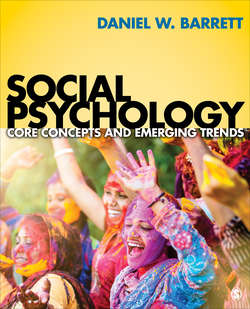Читать книгу Social Psychology - Daniel W. Barrett - Страница 215
На сайте Литреса книга снята с продажи.
Social Psychology Applied to Law Catching Liars
ОглавлениеIf naive individuals are unable to accurately detect deception, then what about professionals? In most cases, training of law enforcement officers is based on the classic book on criminal interrogations by Inbau and his colleagues (Inbau, Reid, Buckley, & Jayne, 2013). Inbau et al. developed the Behavioral Analysis Interview that recommends asking questions that are likely to produce a behavioral response in the suspect, such as nervous movements or changes in eye contact. However, careful research has failed to support Inbau et al.’s claims. Not only do liars fail to demonstrate the expected behaviors (e.g., less eye contact, more fidgeting), they may actually be less likely to show them (Vrij, Fisher, Mann, & Leal, 2010). Even professional lie catchers hold incorrect beliefs (e.g., avoidance of eye contact), which is why they are no more successful than nonprofessionals (Vrij et al., 2000). In fact, even professional lie catchers—individuals trained in the detection of deception—only succeed at about the same rate as students, about 54% of the time (Aamodt & Custer, 2006). Interestingly, criminals outperform most other groups, with an average accuracy rate around 65%, whereas parole officers are accurate only 40% of the time (Aamodt & Custer, 2006).
